Equine Therapy
Equine Therapy for Addiction Treatment
Addiction can be physically, emotionally, and spiritually destructive. Many people in recovery from substance abuse struggle with trust, emotional regulation, and self-worth. While traditional evidence-based therapies play a central role in healing, alternative approaches—like equine-assisted therapy—can offer invaluable extra support.
Horses have a unique ability to connect with humans. Their sensitivity to emotions makes them potentially powerful partners in addiction treatment. By caring for and interacting with these animals, people in recovery can pick up skills that help them recalibrate their lives. Read on to learn how equine therapy for addiction treatment can complement science-backed interventions to promote whole-body healing.

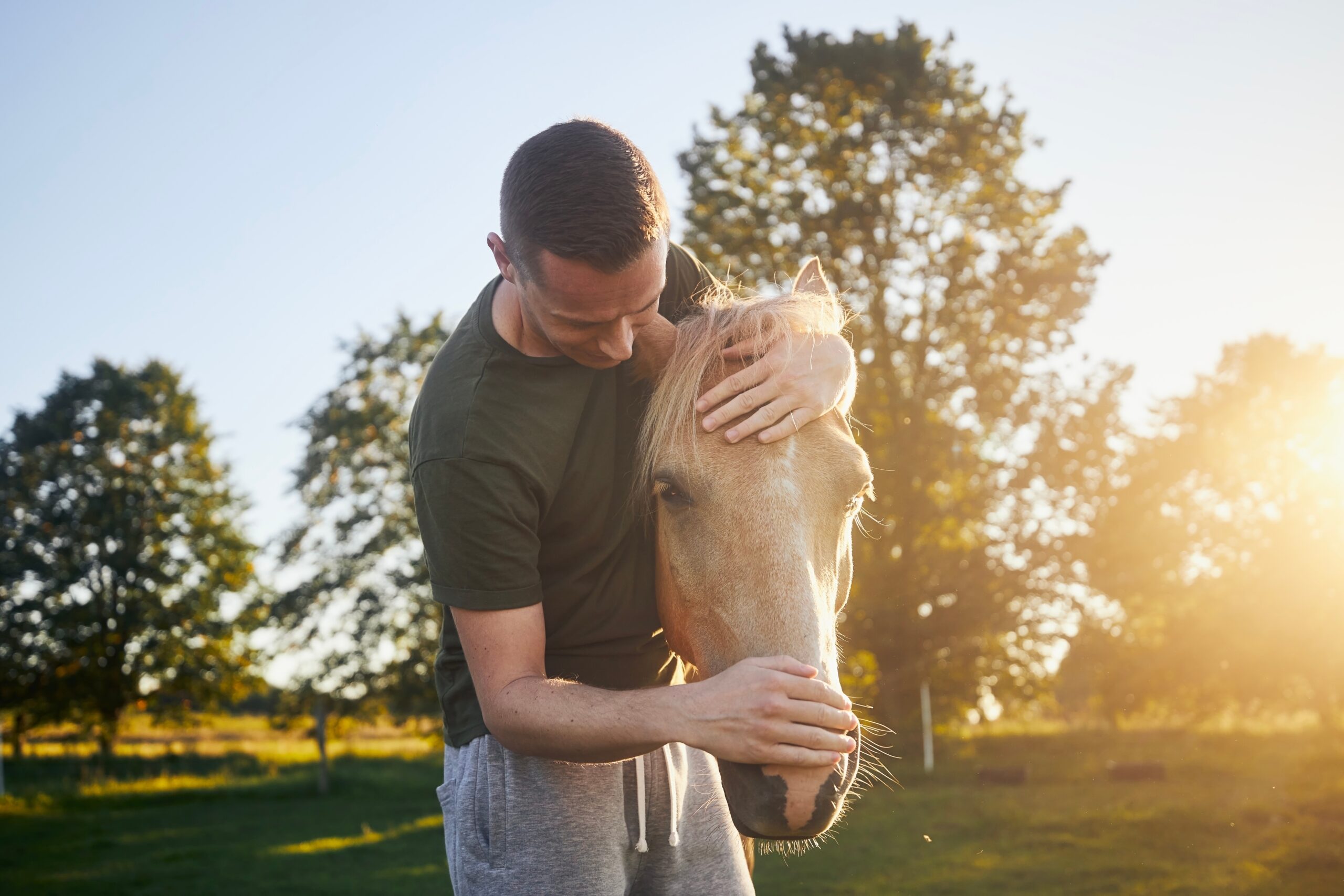
What is Equine Therapy?
Equine therapy, also known as equine-assisted therapy, is a form of treatment that incorporates horses into the healing process. Unlike traditional talk therapy, this approach is hands-on and experiential. Participants engage in activities such as:
- Grooming and feeding horses
- Leading and guiding them through obstacles
- Observing their behavior and responses
- Developing nonverbal communication skills
These interactions encourage self-reflection, emotional growth, and personal insight at a challenging time. Many people battling drug or alcohol addiction struggle to verbalize their emotions, but working with horses enables them to express themselves without using words.
The History of Equine Therapy
The healing connection between humans and horses dates back thousands of years. Ancient Greek physician Hippocrates wrote about the therapeutic benefits of horseback riding. By the 19th century, European doctors were using equine therapy to manage neurological and psychological conditions.
Modern equine-assisted therapy became widely recognized in the 1960s when it was introduced as a form of rehabilitation for people with physical disabilities. Therapists gradually discovered its benefits for mental health and addiction treatment. Today, equine therapy is commonly used in drug and alcohol rehabs nationwide, but how does it work?
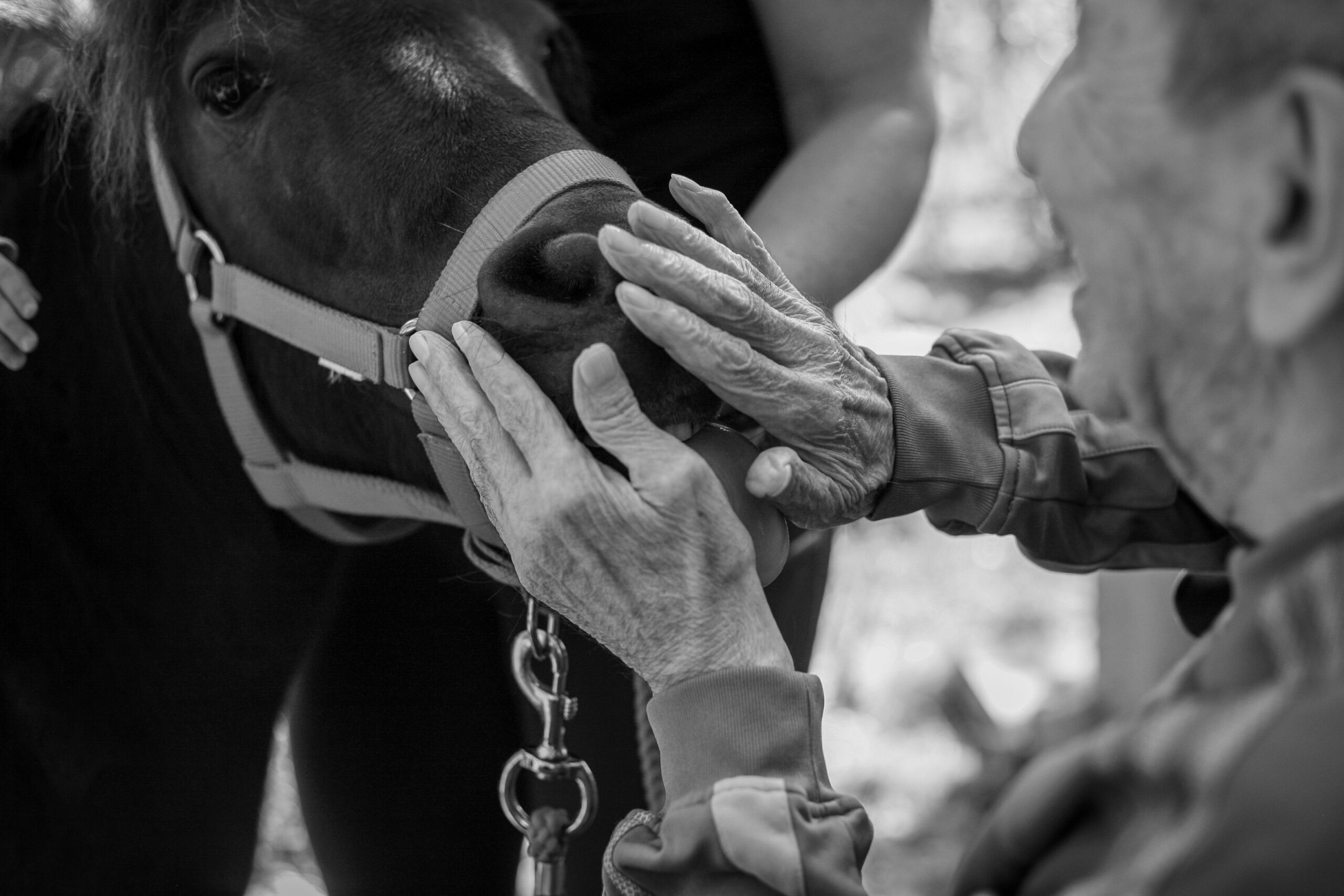
How Equine Therapy Supports Addiction Recovery
Overcoming addiction involves much more than discontinuing the use of drugs, alcohol, or prescription medications. Many people in recovery grapple with low self-esteem, emotional wounds, and difficulty forming healthy relationships. Equine therapy offers a safe and supportive space to work through these challenges.
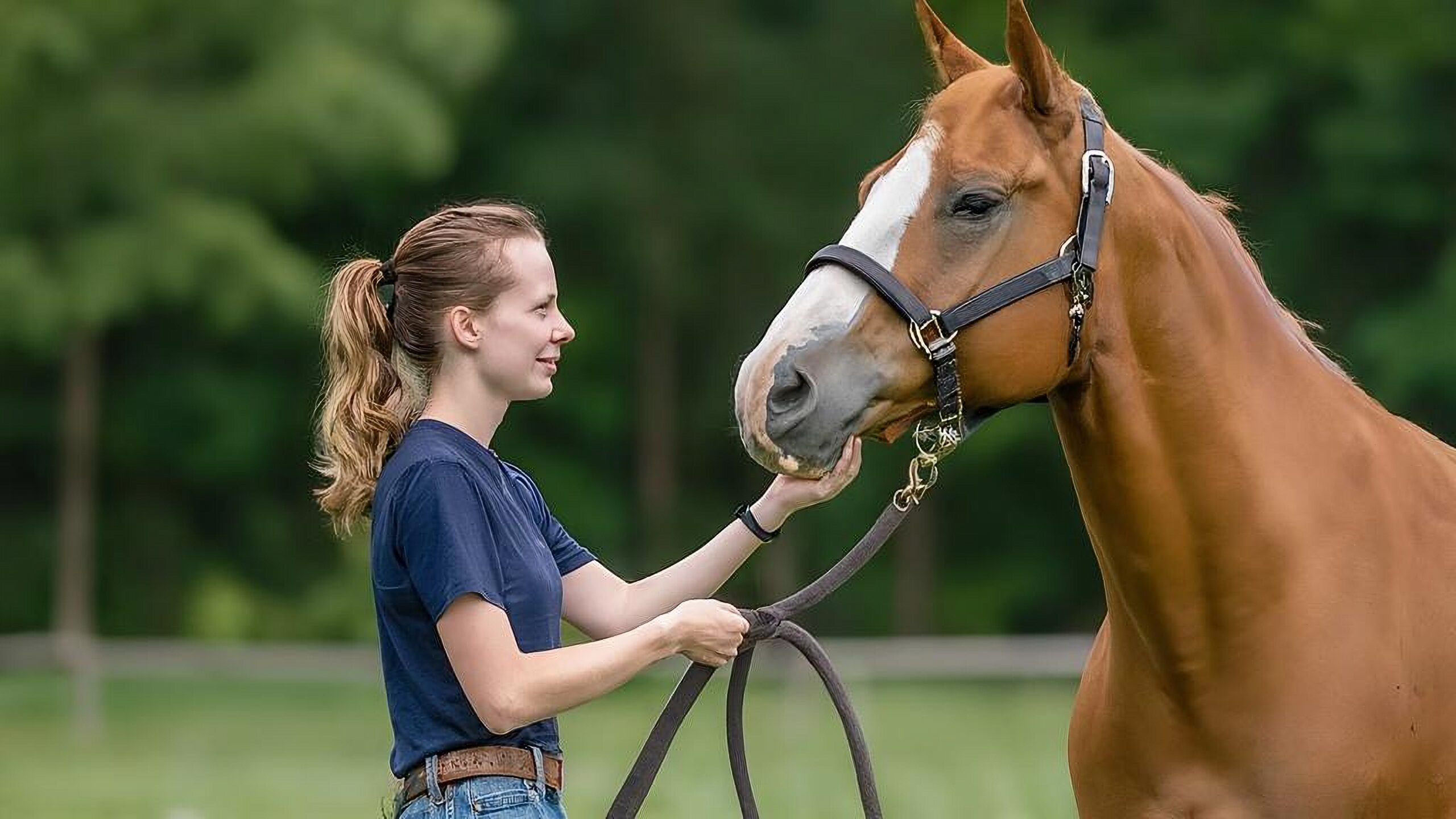
Building trust and emotional awareness
Horses are highly perceptive animals. They respond to human emotions with remarkable accuracy. The horse will reflect that energy if a person is impatient, anxious, or frustrated. This allows individuals to become more aware of their emotional state and learn to regulate their responses more effectively.
Rebuilding trust can be difficult for people with addictions. Past relationships may have become unraveled by substance use. Horses provide a fresh start and a chance to practice forming a bond based on mutual respect and understanding.
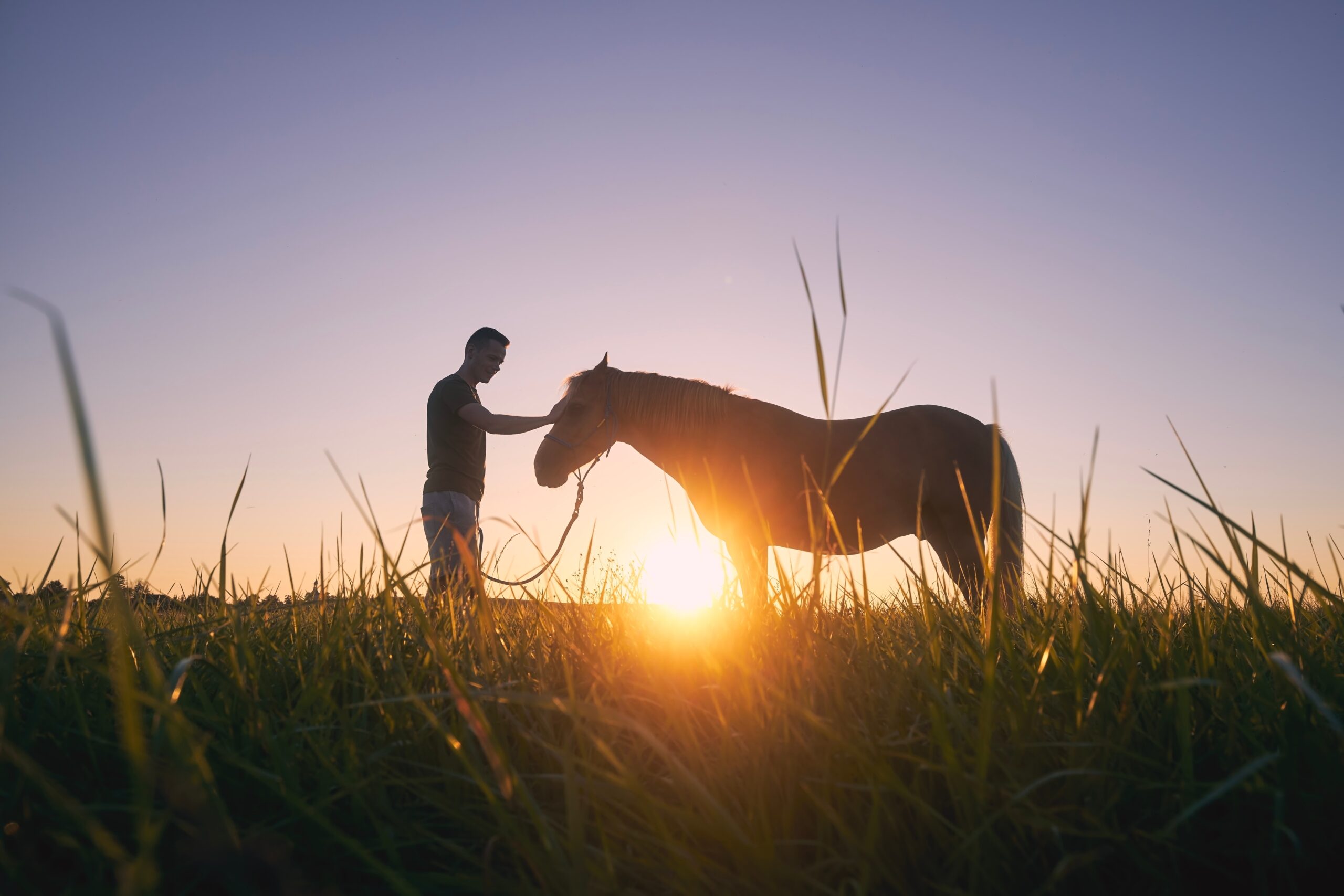
Improving confidence and responsibility
Caring for a horse demands patience, consistency, and responsibility. Feeding, grooming, and leading a horse builds a sense of purpose. For many in recovery, this structure is essential in rebuilding self-discipline and self-worth.
Each small achievement—whether successfully leading a horse or gaining its trust—helps restore confidence shattered by substance abuse. These victories reinforce the belief that meaningful change is achievable.
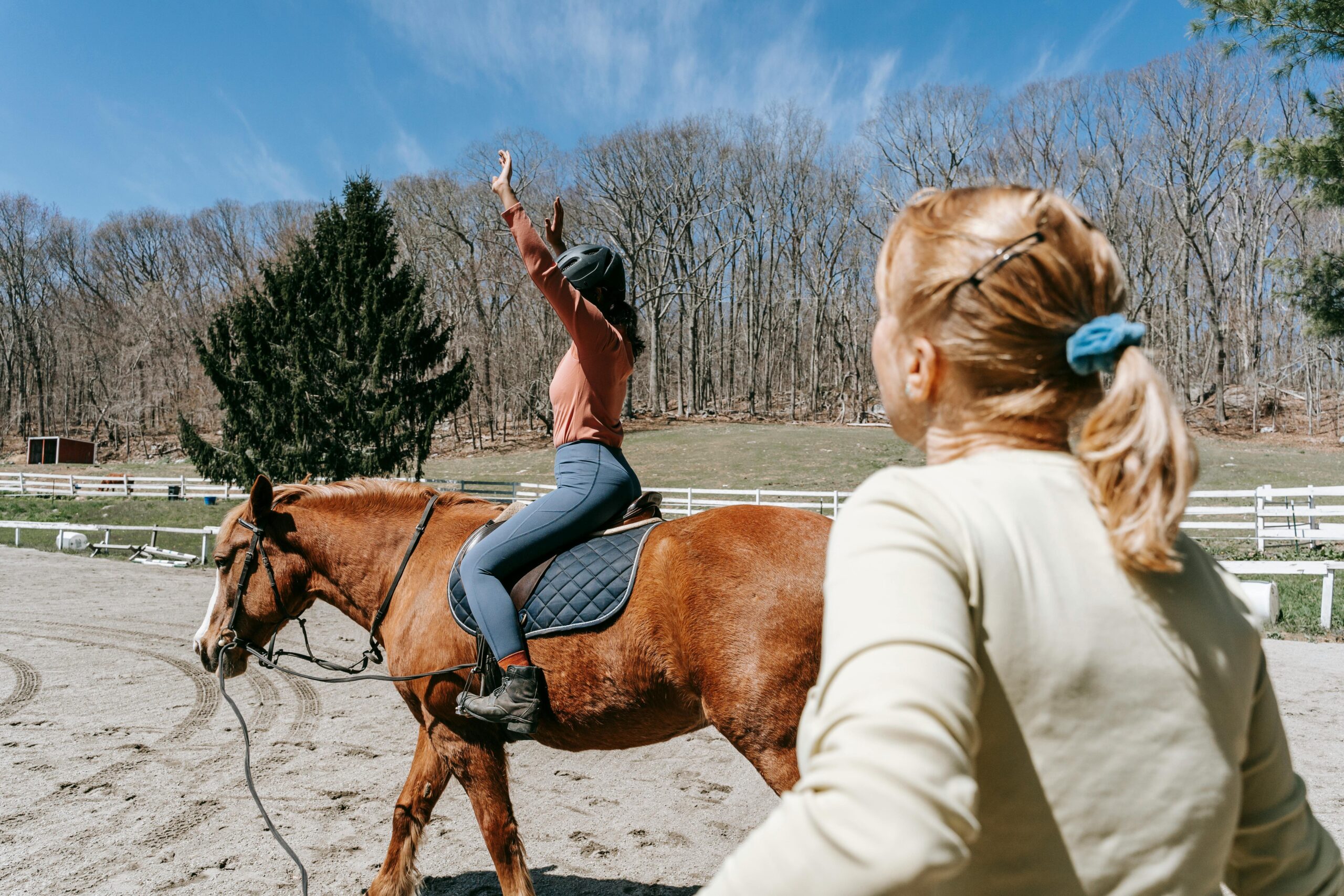
Developing healthy coping skills
Many people resort to drugs or alcohol to cope with stress, trauma, or emotional pain. Equine therapy helps individuals develop healthier ways to manage their emotions. Horses provide immediate and honest feedback, enabling people to identify negative thought patterns and replace them with more positive behaviors.
For example, someone struggling with frustration may learn that approaching a horse calmly yields better results than acting out of anger. These lessons are transposable to real-world situations, improving communication and emotional regulation.
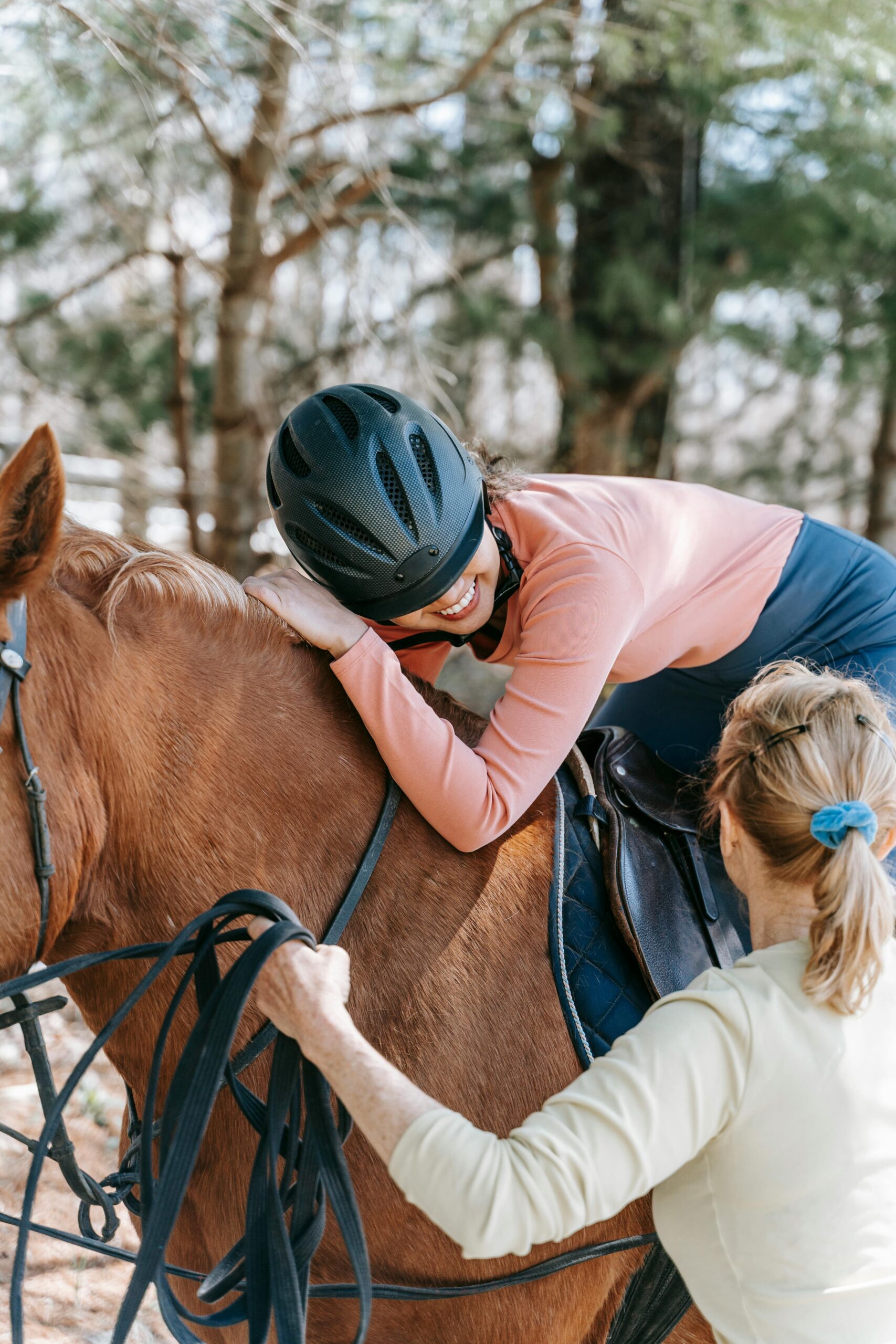
Encouraging mindfulness and presence
Spending time with horses requires focus and patience. Whether grooming, leading, or riding, individuals must stay present in the moment. This mindfulness helps reduce stress, improve concentration, and create inner peace.
For those in recovery from drug or alcohol addiction, staying grounded is integral to relapse prevention. Equine therapy teaches them to slow down, breathe, and be aware of their emotions—skills that help them stay sober over the long haul.
Who Can Benefit from Equine Therapy?
Equine therapy is helpful for many people, including those dealing with:
- Substance use disorders (addictions)
- Anxiety
- Depression
- Trauma and PTSD (post-traumatic stress disorder)
- Low self-esteem
- Social isolation
Equine-assisted therapy can be especially beneficial for individuals who find it challenging to open up in traditional therapy settings. The nonverbal nature of equine interactions allows for emotional expression without the pressure of words.
Most recovery programs blend equine therapy with traditional methods like CBT (cognitive behavioral therapy) and group counseling. This integrated and holistic approach addresses the emotional and behavioral aspects of addiction to encourage whole-body healing.


Getting Started with Equine Therapy
If you or someone you care about is dealing with any kind of addiction, equine therapy may help healing. During an initial session, participants typically:
- Meet the horse and observe their behavior
- Learn basic horse care and handling techniques
- Engage in guided activities that promote trust and emotional awareness
- Reflect on their experiences and apply lessons to their recovery journey
No prior experience with horses is necessary—the focus is on personal growth rather than horsemanship.
A Path to Healing at The Retreat
Recovery goes beyond detoxing from drugs or alcohol and breaking physical dependence. Long-term healing requires rebuilding trust, confidence, and emotional resilience. Equine therapy is a powerful tool in a comprehensive treatment plan, and we can help you with this at our luxury rehab. Reach out to The Retreat today and discover how equine therapy for addiction treatment could be the missing piece in your recovery journey.


